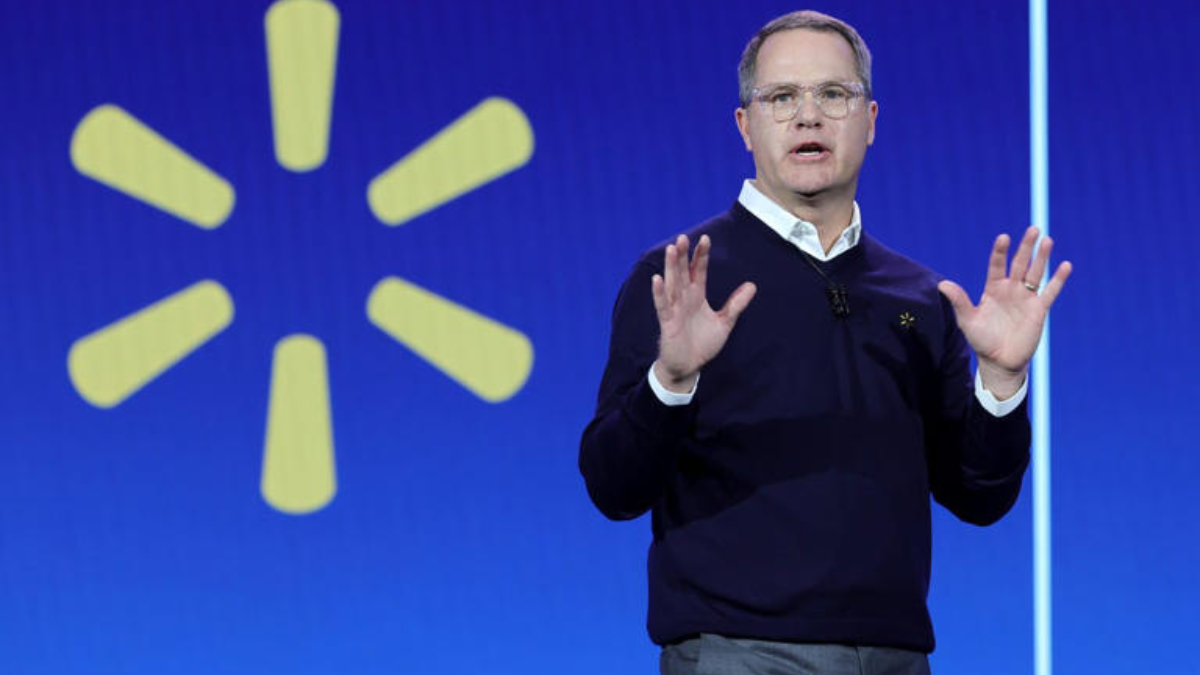BENTONVILLE, Ark. — Walmart, the world’s largest retailer, has announced price increases on a range of products in response to the latest round of tariffs imposed by President Donald Trump’s administration. This move signifies a significant shift for the company, which has long emphasized low prices as a core part of its brand identity.
Price Increases and Job Cuts
In a recent statement, Walmart confirmed that it would be raising prices on various goods, including electronics, household items, and groceries, to offset the costs associated with the new tariffs.
While the company did not specify the exact percentage of the price hikes, it indicated that the increases would be implemented gradually over the coming weeks.
Alongside the price adjustments, Walmart announced plans to lay off approximately 1,500 employees, primarily in corporate and technology roles. These layoffs are part of a broader restructuring effort aimed at streamlining operations and reducing costs in the face of the challenging economic environment created by the tariffs.
Trump’s Response
President Trump responded to Walmart’s announcement with criticism, urging the company to absorb the costs of the tariffs rather than passing them on to consumers. In a post on his social media platform, Trump stated, “Walmart should STOP trying to blame Tariffs as the reason for raising prices throughout the chain.
Walmart made BILLIONS OF DOLLARS last year, far more than expected. Between Walmart and China they should, as is said, ‘EAT THE TARIFFS,’ and not charge valued customers ANYTHING.”
The president’s comments reflect his administration’s stance that American companies should bear the brunt of the tariffs to protect consumers from price increases.
However, many businesses argue that the tariffs significantly impact their cost structures, making it challenging to maintain current pricing levels without affecting profitability.
Treasury Secretary’s Acknowledgment
Contrary to President Trump’s assertions, Treasury Secretary Scott Bessent acknowledged that the tariffs are likely to lead to higher consumer prices.
In a recent testimony before the House Committee on Appropriations, Bessent stated that while the administration aims to minimize the impact on consumers, the reality is that tariffs increase costs for importers, which can result in higher prices at the retail level.
Bessent’s comments highlight the internal tensions within the administration regarding the economic consequences of the tariff policies.

While the president emphasizes the need for companies to absorb the costs, economic advisors acknowledge the practical challenges businesses face in doing so.
Impact on Retail Sector
Walmart’s decision to raise prices is indicative of the broader challenges facing the retail sector amid the ongoing trade disputes. Retailers operating on thin profit margins find it difficult to absorb additional costs without adjusting prices.
While some companies, like Home Depot, have suggested they can maintain stable prices, others, including Walmart and Target, have indicated that price increases are necessary to sustain operations.
The mixed responses from retailers underscore the complexity of the situation, as businesses navigate the dual pressures of maintaining profitability and retaining customer loyalty in a competitive market.
Consumer Behavior and Market Trends
The anticipation of price hikes has influenced consumer behavior, with many shoppers accelerating purchases to avoid higher costs. Retail analysts have observed increased sales in categories such as electronics, home appliances, and seasonal goods, as consumers seek to buy items before prices rise.
This shift in purchasing patterns may provide a temporary boost to retailers but could also lead to a slowdown in future sales as consumers adjust their spending habits in response to the new pricing landscape.
Economic Outlook
The broader economic implications of the tariffs and resulting price increases are a subject of ongoing debate among economists and policymakers.
While the administration argues that the tariffs are necessary to protect American industries and reduce trade deficits, critics warn that the measures could lead to inflationary pressures and dampen consumer spending.
The situation presents a complex challenge for businesses, consumers, and the government, as they grapple with the immediate effects of the tariffs and the long-term consequences for the U.S. economy.
For more information: Walmart to lay off 1,500 employees after announcing price hikes
Disclaimer – Our team has carefully fact-checked this article to make sure it’s accurate and free from any misinformation. We’re dedicated to keeping our content honest and reliable for our readers.
